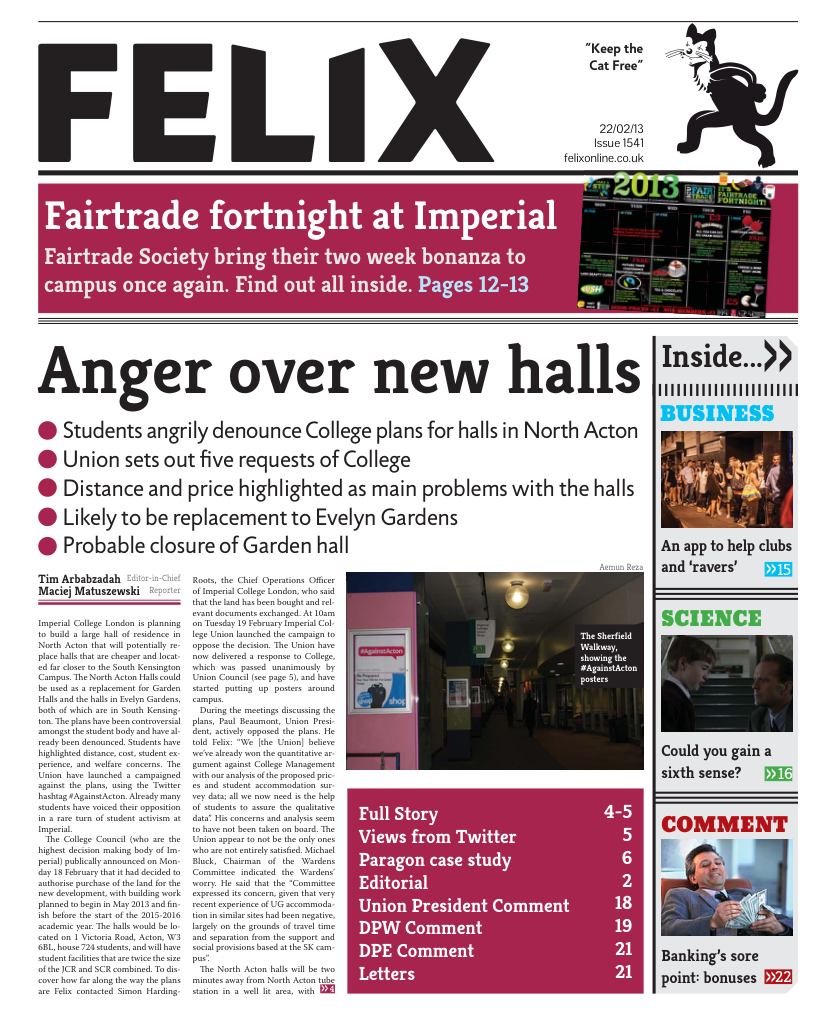Cold Cuts of Noise
Riaz Agahi reviews the mighty collaborative album Cuts

Merzbow is widely regarded as the biggest name in noise music; the man’s been blistering eardrums in over 350 recordings since 1979. Like most of the experimental music world, in addition to copious solo albums, there are copious collaborations, often live.
This album, mastered by James Plotkin, sees him collaborating with Swedish saxophonist Mats Gustafsson and Hungarian drummer Balázs Pándi. It’s always interesting to hear Merzbow blending his style with that of another bandor artist, to which his many and vastly diverse work with Boris or even The Haters is a testament. This album is certainly no exception, not least because Merzbow has cited free jazz artists such as Albert Ayler as big influences and suggested that his sound was like mixing elements of these influences with electronic pioneers like Karlheinz Stockhausen through pure electronic noise.
Therefore, it is great to see him working with one of the true heroes of modern free jazz in Mats Gustafsson. Although much younger, Gustafsson has been just as prolific and has notable projects such as Fire! and The Thing to show for it, as well as an extensive solo output. He’s from the Swedish town of Umeå, which has produced many notable artists, such as Meshuggah and Refused, and according to Gustafsson had a punk and hardcore scene running in parallel with free jazz, and perhaps Gustafsson could be viewed as a product of his environment. He is often known and, unfortunately, pigeonholed for the aggressive use of a squealing saxophone but in fact he has also been known to perform with live electronics too, something which is present in this album, and for another example of him breaking with this stereotype of his work, see the more measured and accessible album Exit! by Fire! Orchestra released earlier this year.

Balázs Pándi has performed in an amazingvariety of projects, having worked with Venetian Snares, Italian noise-jazz-rock group Zu, personal favourites The Kilimanjaro Darkjazz Ensemble, for the past few years, been a live drummer for Merzbow. Unbeknownst to me, I actually saw them perform together at Supersonic last year, with Niko Wenner and Eugene Robinson from Oxbow also making appearances.
Although most people have focused on the interaction between Merzbow and free jazz, which is certainly interesting, I can’t help but feel that Pándi’s drumming is the place to start. Once again, everyone has described it as free jazz based, and although mostly true, this ignores some beats that are more common in metal, not least of all, the use of a blast beat. Of course, since 1994’s Venereology, chaotic metal drumming and electronics that blend noise and grind has intermittently been a part of Merzbow’s sound.
Merzbow’s role in all of this is arguably a lot more restrained than normal, with him and Gustafsson sharing the role that Merzbow usually occupies, and at times Merzbow’s sound even achieves some bassy tones while Gustafsson’s saxophone hits the high ends pretty hard. This restraint in Merzbow’s noise means that instead of the dominant force in the music, a wall of enveloping sound, it sits in the mix as merely another instrument, with much less of the entropy normally associated with a Merzbow release. This interpretation is confounded by the fact that sometimes it is hard to distinguish Merzbow and Gustafsson. A good example of their interplay is demonstrated in ‘Deep Lines. Cuts’ where they exchange noisy squeals like 2 shredding guitarists trading licks in a solo.

One complaint, perhaps, is that the bassy end of the spectrum is not too well covered, with a gap in the mix only occasionally plugged by Merzbow, although it sounds great when he does. Other bands who have a similarly (yet also quite different) noisy jazz sound such as Supersilent cover this area pretty well, so this was one source of moderate disappointment for me.
It is interesting to note, perhaps, that Pándi’s drumming facilitates what I would describe as a convergence of the styles associated with Gustafsson and Merzbow, sitting nicely between noise and the noisier end of free jazz. More chaotic than Fire!, for example, but less intense and face melting than the likes of Government Alpha. Notably the opener, ‘Evil Knives. Lives’ is particularly catchy; although I’m sure to the uninitiated it’s simply unpleasant. The short tracks are a little more conventional, in that Merzbow takes a back seat, droning away nicely in the background, while the saxophone takes centre stage in a standardly Gustafsson noisy free jazz solo. Although this is less cutting edge and less abrasive it is still top quality stuff and it is interesting to hear, especially in these tracks, but also in the album as a whole, Merzbow as a more laid back, restrained cog in a machine rather than simply an overpowering machine on his own.







